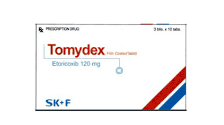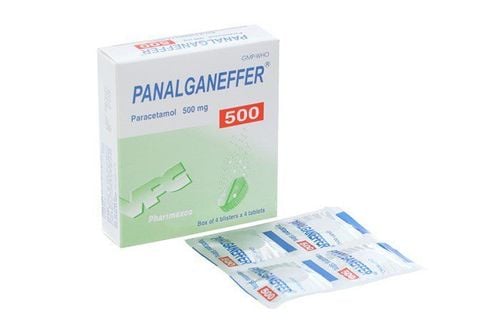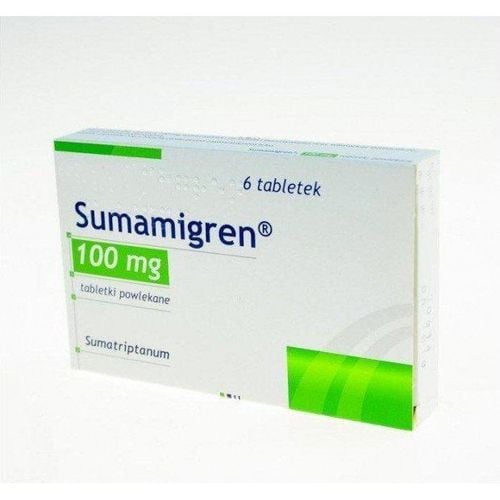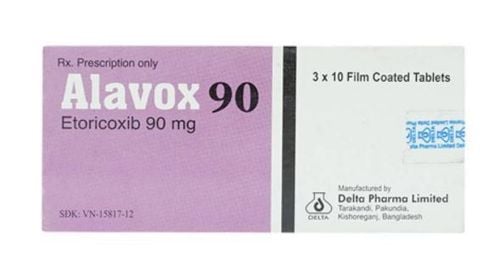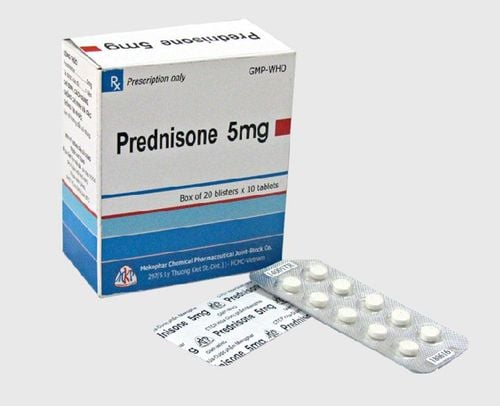This is an automatically translated article.
Ahevip belongs to the group of non-steroidal anti-inflammatory drugs, analgesics and antipyretics with the main ingredient Etoricoxib, which is commonly used to treat cases of rheumatoid arthritis, osteoarthritis or joint pain caused by gout. So how does Aevip work?
1. What is Ahevip?
What is Ahevip drug? Etoricoxib is a non-steroidal anti-inflammatory drug with the same mechanism of action as other substances in the same class by inhibiting the biosynthesis of prostaglandins, mediators of inflammation, but especially selective inhibition of enzymes. cyclooxygenase 2 (COX-2) during inflammation. This makes the drug highly effective against inflammation and less likely to cause gastric side effects than other common NSAIDs because the inhibition of prostaglandin biosynthesis at the site of inflammation is stronger than in the gastric mucosa or in the kidney.
Regarding the pharmacokinetics, Etoricoxib is well absorbed from the gastrointestinal tract, is not significantly affected by food and peak plasma concentrations are achieved after 1 hour. Etoricoxib is metabolized primarily in the liver to 6-hydroxy methyl metabolites. The drug is excreted mainly in the urine (70%) and 20% in the feces, mainly as metabolites with a half-life of 22 hours.
Ahevip drug is usually indicated in the following diseases:
Treatment of acute and chronic osteoarthritis: rheumatoid arthritis, ankylosing spondylitis, osteoarthritis, joint pain caused by gout. Treatment of ankylosing spondylitis Treatment of acute gouty arthritis Relief of acute and chronic pain Treatment of primary dysmenorrhea The contraindications of Ahevip include:
Patients with hypersensitivity to any of the components of the drug. Medicine Ahevip Patients with a history of asthma, urticaria, allergy to aspirin/NSAIDs Congestive heart failure (NYHA II-IV) Persistent hypertension > 140/90 mmHg inadequately controlled Ischemic heart disease, Peripheral artery disease or confirmed cerebrovascular disease (including recent coronary artery bypass grafting or angioplasty) Child-pugh liver failure > 10 or serum albumin < 25 g/L Ulcers Gastroduodenal activity, gastrointestinal bleeding Severe advanced kidney disease ClCr < 30 ml/min
2. Dosage of the drug Ahevip
Depending on the subjects and treatment goals, the dose of Ahevip will be different, specifically as follows:
Osteoarthritis (degenerative joint): 30 mg or not more than 60 mg taken once a day. rheumatoid arthritis, ankylosing spondylitis: up to 90 mg once daily Moderate pain after dental surgery: no more than 90 mg once daily up to 3 days Gout arthritis (acute gout attack): no more than 120 mg once a day, up to 8 days. Acute pain, primary dysmenorrhea: no more than 120 mg once a day, up to 8 days Patients with liver failure: no more than 60 mg once a day Patients with renal failure (CLCr > 30 ml/min): no need Dose adjustment There is no need to adjust the dose of Ahevip according to age, sex or race
3. Side effects of the drug Ahevip
In some patients when using Ahevip, side effects may occur such as:
Thrombocytopenia Hypersensitivity reactions Hyperkalemia Anxiety, insomnia, confusion, hallucinations, depression, restlessness Disorder taste, somnolence Blurred vision Congestive heart failure, palpitations, palpitations, angina, tachycardia Paroxysmal hypertension Bronchospasm Abdominal pain Mouth ulcers Gastrointestinal ulcers including perforation and gastrointestinal bleeding vomiting, diarrhea Hepatitis, jaundice, elevated liver enzymes Angioedema, pruritus, erythema, rash, Stevens-Johnson syndrome, toxic epidermal necrolysis, urticaria.
4. Be careful when using the drug Ahevip
Some general notes when using Ahevip include:
Because cardiovascular risk increases with dose and duration of selective COX-2 inhibitors, Ahevip should be used for the shortest time with the lowest effective dose. . In addition, selective COX-2 inhibitors do not replace aspirin in cardiovascular prevention because of their lack of effect on platelets. Ahevip should be used with caution in patients with known cardiovascular risk (hypertension, hyperlipidemia, diabetes mellitus, smoking, concomitant use of acetylsalicylic acid), significant dehydration, history Perforation, ulceration, gastrointestinal bleeding or elderly patients (> 65 years old), exacerbation of asthma, rhinitis, urticaria due to salicylates induction, being treated for infections Monitor for manifestations. fluid retention, edema, hypertension in people with pre-existing fluid retention, hypertension, heart failure Monitor renal function in patients with reduced renal function, decompensated heart failure, significant cirrhosis Pregnant women Use only during the first 2 trimesters if the benefit outweighs the risk. Lactating women should discontinue or discontinue nursing The safety and effectiveness of Ahevip have not been established in the pediatric population.
5. Drug interactions with Ahevip
Administering Etoricoxib to patients who are well on Warfarin can lead to an increase in prothrombin levels. INR values should be closely monitored before starting Ahevip therapy. Co-administration of Ahevip with rifampicin has the potential to induce enzyme activity. Strong hepatic metabolism Non-steroidal anti-inflammatory drugs increase the blood level of Lithium, need to be monitored and adjusted. Etoricoxib may increase the hematologic toxicity of methotrexate Non-steroidal anti-inflammatory drugs may reduce the anti-inflammatory effect of methotrexate. Etoricoxib ACE inhibitors have no pharmacokinetic interaction with prednisolone or digoxin Gastric antacids and ketoconazole do not cause significant interactions with etoricoxib Co-administration of Ahevip with high-dose aspirin may increase the risk Gastrointestinal bleeding Co-administration of Ahevip with oral contraceptives may increase the side effects of oral contraceptives. The drug Ahevip belongs to the group of non-steroidal anti-inflammatory drugs, analgesics and antipyretics with the main ingredient Etoricoxib commonly used to treat cases of rheumatoid arthritis, osteoarthritis or joint pain caused by gout. To ensure the effectiveness of treatment and avoid unwanted side effects, patients need to strictly follow the instructions of the doctor, professional pharmacist.
Follow Vinmec International General Hospital website to get more health, nutrition and beauty information to protect the health of yourself and your loved ones in your family.




